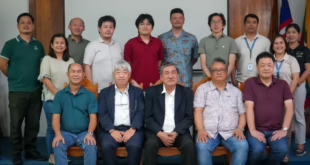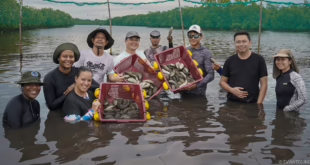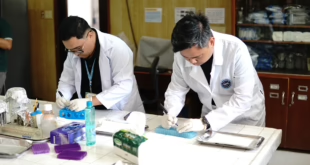By Development Communication Section

Fisheries officers of Southeast Asian countries such as Cambodia, Indonesia, Lao PDR, Malaysia, Thailand, Viet Nam, and the Philippines attended a training at SEAFDEC/AQD towards a move to restore the population of overexploited aquatic species in their respective countries.
SEAFDEC/AQD organized the international training, with funding support from the Government of Japan Trust Fund (GOJ-TF), aiming to enable Southeast Asian countries to initiate resource enhancement activities or improve their current programs.
Malaysian trainee Buniamin Bin Kiprawi said that the six-day training course, helped him to understand better how to carry out resource enhancement activities.
“Malaysia has lots of activities in fry stocking, fry release, that is what I understand what stock enhancement is, but after getting my knowledge here, I understand more in stock enhancement. It is not only fry releasing, it is not only broodstock releasing. We [also] have to monitor, we have to do the assessment, and the re-evaluation,” he said.
The participants were oriented on the principles of stock enhancement, marine ecosystems, coastal resource management, and genetic considerations for stock enhancement among others.
“I learned very much and I hope to transfer my knowledge that I learned from this training to my colleagues, to my staff, and especially the staff working at the provincial,” said Syvann Leng, a participant from Cambodia.
“Though the time is very short, we gained a lot, we owe a lot to SEAFDEC,” he added.
This training course, which culminated on 21 April 2018, is the outcome of SEAFDEC/AQD’s research activities under its GOJ-TF Program on establishing or developing methodologies on sea ranching and release strategies for CITES-listed and overexploited species such as abalone, mangrove crab, sea cucumber, seahorse, and Napoleon wrasse.

 SEAFDEC/AQD Southeast Asian Fisheries Development Center | Aquaculture Department
SEAFDEC/AQD Southeast Asian Fisheries Development Center | Aquaculture Department



